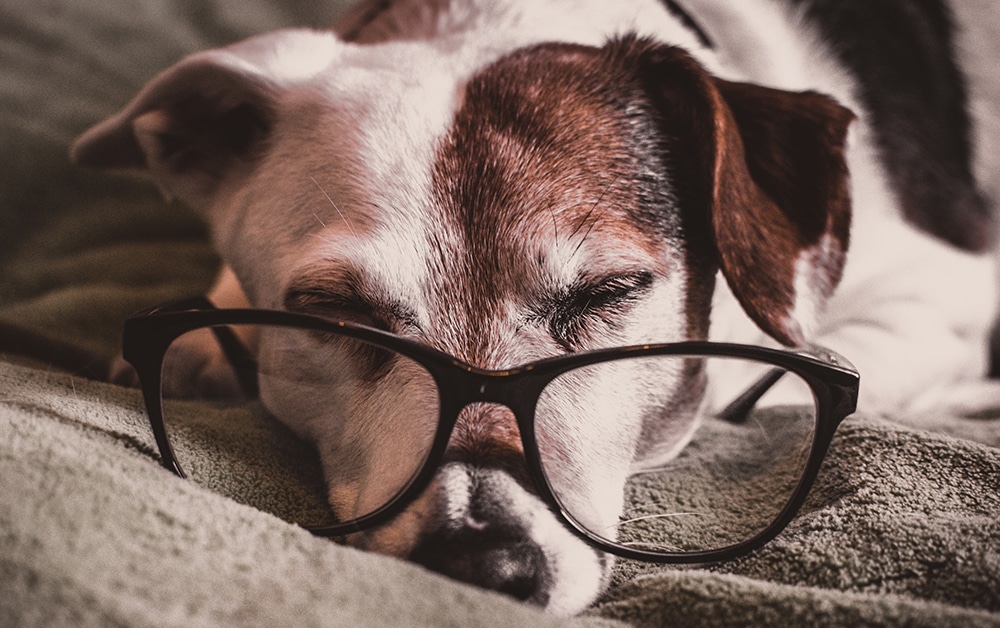Lots of changes come with aging. As dogs grow older, struggles may arise and it is important to know how to adjust and handle those problems. Being aware of what to expect from a senior dog helps to ensure your pet’s golden years are happy and healthy.
This blog discusses the complications that may come up as a dog transitions to their senior years with issues, such as graying hair, loss of energy and mobility, weight gain, dental problems, hearing loss and vision loss.
Graying Hair in Senior Dogs
Graying is a natural process as a dog ages. Canines begin to turn gray around their eyes, muzzle and paws at about five years old. These areas are generally the only places most dogs’ fur completely changes color with the rest of their coat only fading a little bit.
The color change is caused by the decreasing melanin in a dog’s fur. Melanin is a natural pigment created by a specialized group of cells called melanocytes. This pigment is responsible for the color of a dog’s coat. When the melanin is weakened, usually because of age, a dog’s fur begins to change to gray in certain areas. There is nothing to stop this process nor is it dangerous to the dog.
Talk to your vet about supplements for a senior’s skin and coat to ensure your pet is getting the right amount of minerals and vitamins. Speak with your dog groomer about different shampoos, conditioners and skin treatments that would benefit a senior dog’s coat.
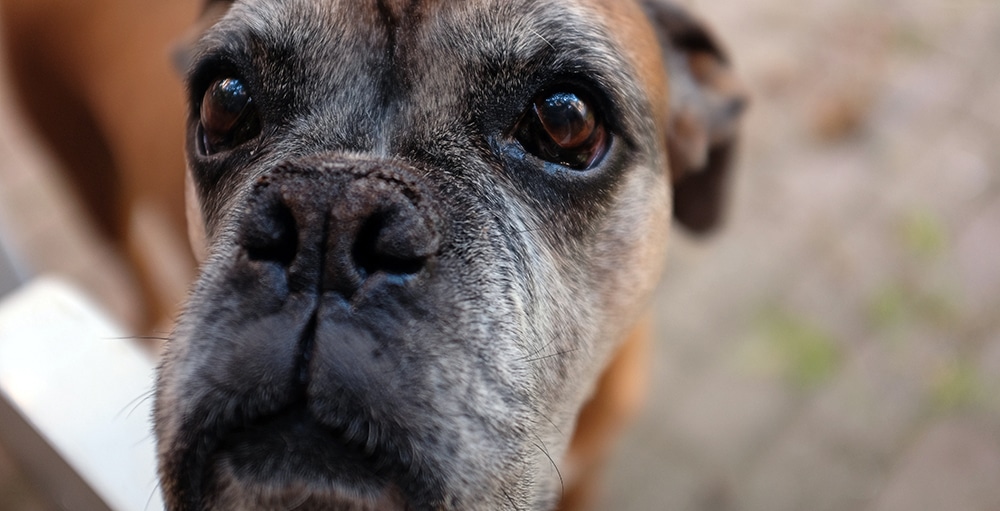
Loss of Energy & Mobility in Senior Dogs
Even the most active of breeds reduce in energy as they get older. A dog’s energy requirement decreases around 20% as they age. Adjusting to the new energy level is important to have a dog continue in good health. Consistent gentle and short walks and playtime help a senior dog maintain healthy bones, weight and joints. Over exercising a senior dog can cause injury or exhaustion.
Mobility becomes a major issue for breeds that are at high risk for arthritis. Poodles, Labradors, German Shepherds, Pugs and many other breeds may need a bit of extra help as they age to continue a level of mobility. Daily exercise helps to build muscles, increase blood flow and increase oxygen to maintain healthy joint cartilage. Gripping booties, anti-skid mats, carpet tiles and staying on top of nail trims allow a dog to stand and walk on hard floors without fear of slipping. Ramps are easier on a senior dog’s body than stairs and comfortable bedding helps to support their joints as they sleep.
Talk to your vet on options of acupuncture, laser therapy, joint supplements and a referral to a veterinary rehabilitation facility for your senior dog. These choices all help a canine to slow down the process of decreasing mobility and increase an aging dog’s quality of life. Read more in depth of these options in this blog.
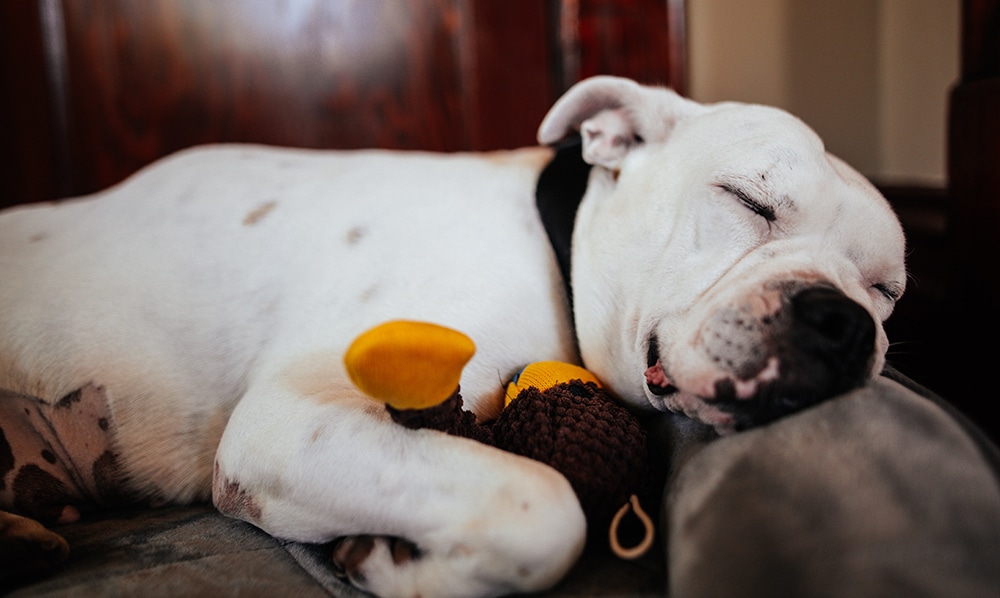
Weight Gain in Senior Dogs
A senior dog’s energy and mobility decrease results in weight gain. An overweight dog can be at risk for diabetes, breathing problems, heart disease, cancer, and many other health conditions. Along with continued exercise, a healthy balanced diet is vital to an older dog’s overall health.
Senior canines need less calories since they are not expelling as much energy. Their metabolism slows down and their calorie consumption needs to be reduced by about 20%-30% of their typical intake of food. A general rule of thumb is to feed a senior dog two percent of their body weight. Speak with your vet on the exact amount of food your specific dog needs daily.
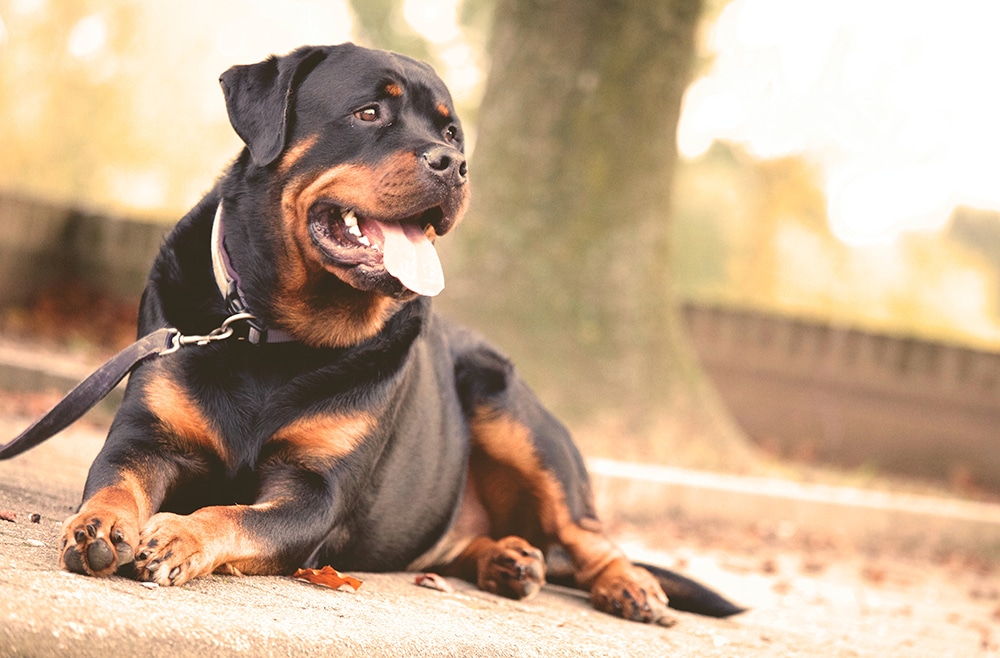
Dental Problems with Senior Dogs
Senior dogs are more susceptible to periodontal disease which is an advanced form of gingivitis and is the result of plaque and tartar build-up. If you haven’t been already, brush your pet’s teeth daily with a dog toothpaste recommended by your vet and take them in for an annual teeth cleaning.
This will also be the time to retire those hard chews and toys. Senior dog’s teeth are weaker and so become easier to damage. Look for softer textures for chews and avoid bones and hooves as your dog ages. Rubber, silicone, and fabric are all good choices for toy material. A rule of thumb is if your fingernail does not make an indent in the chew or toy but bends instead, it is too hard for your senior dog’s teeth.
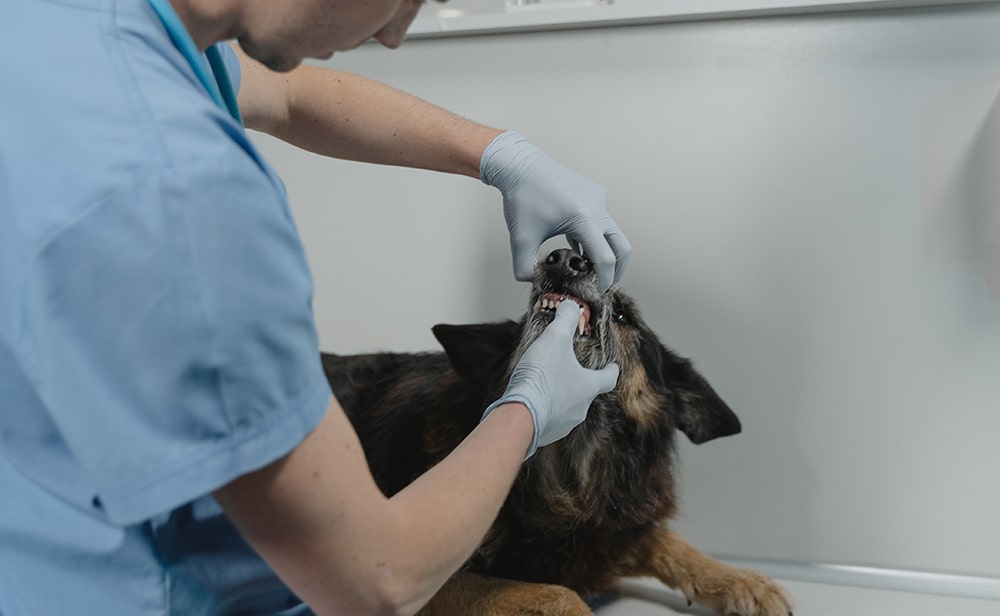
Hearing & Vision Loss with Senior Dogs
Hearing and vision are two of the most important senses and senior dogs are most at risk at losing those two as they age. Though it’s natural for some hearing and vision loss to occur, sometimes it ends up becoming more serious. Hypertension, diabetes, and aging can cause a variety of ocular problems including cataracts, glaucoma, and macular degeneration. Keep an eye on how the dog behaves. Pay attention to if they bump into items, stop making eye contact, their eyes are beginning to look cloudy, etc. Bring your pet in for regular vet visits to catch any symptoms early.
At times hearing loss is caused by inner ear blockage or ear infections. This can be easily treated by a vet. However, sometimes hearing loss is just that – hearing loss which eventually leads to complete deafness. Some breeds most affected are Dalmatians, Boston Terroirs, English Cocker Spaniels, and English Setters.
Losing hearing and/or vision can be a scary and confusing time for your dog. They may have increased anxiety, become easily startled, and aggressive. If you see these changes, it’ll be time to teach an old dog new tricks. Changing how commands are given, blocking off dangerous areas, and engaging the dog’s other senses will help your elderly pet adjust to the new reality and give them a sense of safety.
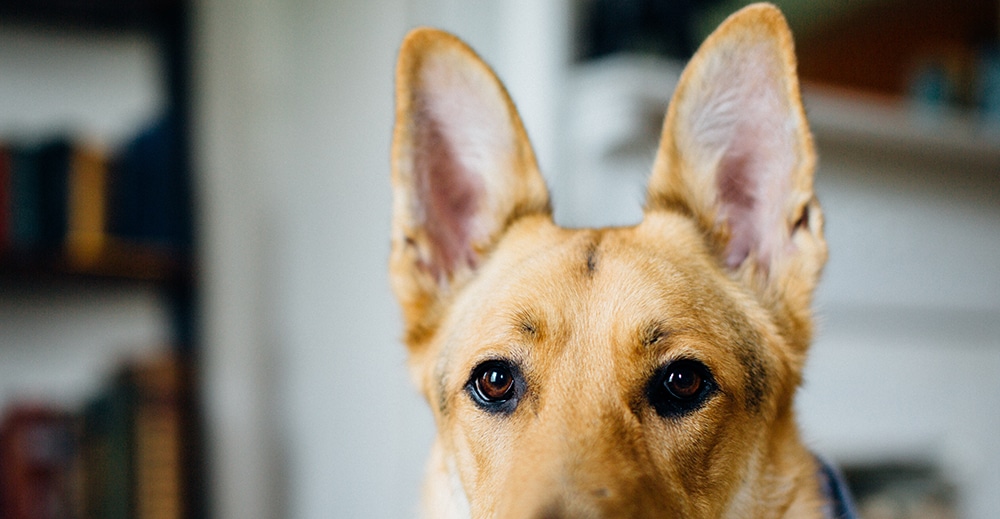
Happy and Healthy in Senior Dog Years
A lot of changes happen as our beloved pets go from energetic youngsters to senior citizens. As their mobility, hearing, vision and dental all deteriorate, we as their human parents can help ease their progression into their elder years by maintaining appropriate exercise, food intake, dental health, regular vet visits, and creating a safe environment for them.


